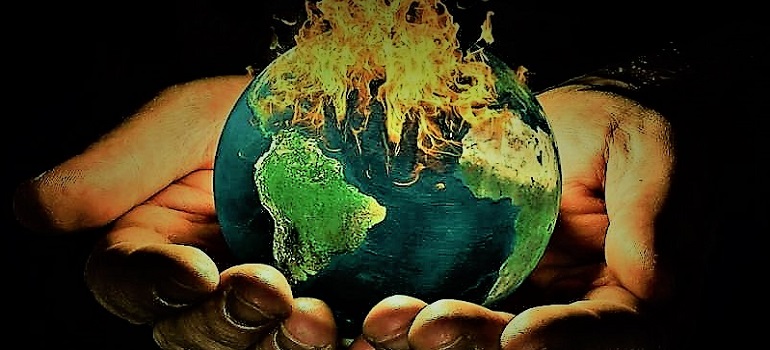Google has always demonstrated its creativity with doodles and highlighted important days and special occasions with its creative and witty animations. This time, to mark the Earth Day the firm presented a unique doodle.
The tech giant with its creativity surprised people when they opened their google browser, they saw a series of animations of four locations as a greeting of Earth Day. These are time-lapse animations that depict the climate change that has taken place over a period of time and impacted our planet.
Earth Day is observed every year on April 22 to spread the message on how to save the planet from climate change and adopt sustainable development for our future generations.
Google used real time-lapse imagery from Google Earth Timelapse and other sources, the Doodle shows the impact of climate change across four different locales around our planet and every hour Google kept changing them. The imagery shows several parts of the planet, including coral reefs, glaciers, and general greenery, which has visibly reduced over the decades.
Doodles
Glacier retreat at the summit of Mt. Kilimanjaro
Google showcased the real imagery from Mt. Kilimanjaro in Tanzania, Africa. This highlights the glacier retreat at the summit of Mt. Kilimanjaro from December 1986 to December 2020.
Glacier retreat in Greenland
Next animation showcased the glacier retreat in Sermersooq, Greenland from 2000 to 2020.
Coral bleaching on Lizard Island, Australia
Third animation depicted the Great Barrier Reef in Australia, emphasising the coral bleaching on Lizard Island from March to May 2016.
Forests destroyed by bark beetle infestation
due to rising temperatures and severe drought
Fourth animation showcased the Harz Forests in Elend, Germany. This animation depicts the forests destroyed by bark beetle infestation due to rising temperatures and severe drought from 1995 to 2020.
According to United Nations, “As greenhouse gas emissions blanket the Earth, they trap the sun’s heat. This leads to global warming and climate change. The world is now warming faster than at any point in recorded history.”
UN ActNow has also stated several ways through which people can take action against climate change on the occasion of Earth Day 2022.

